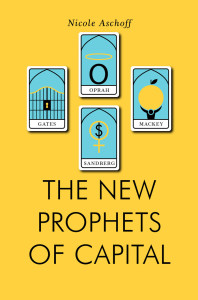 A virtual playlist of the best of Public Enemy, configured to fit on four CDs. These aren’t just the obvious choices, though most of those are here too.
A virtual playlist of the best of Public Enemy, configured to fit on four CDs. These aren’t just the obvious choices, though most of those are here too.
Disc 1
It Takes a Nation of Millions to Hold Us Back (1988) (the album in its entirety)
Disc 2
Fear of a Black Planet (1990) (the album in its entirety)
Disc 3
- “Can’t Truss It” from Apocalypse 91…The Enemy Strikes Black (1991)
- “Hazy Shade of Criminal” from Greatest Misses (1992)
- “By the Time I Get to Arizona” from Apocalypse 91…The Enemy Strikes Black (1991)
- “I Don’t Wanna Be Called Yo Niga” from Apocalypse 91…The Enemy Strikes Black (1991)
- “Nighttrain” from Apocalypse 91…The Enemy Strikes Black (1991)
- “Whole Lotta Love Goin on in the Middle of Hell” from Muse Sick-n-Hour Mess Age (1994)
- “Live and Undrugged Part 1 & 2” from Muse Sick-n-Hour Mess Age (1994)
- “Bedlam 13:13” from Muse Sick-n-Hour Mess Age (1994)
- “Revolverlution” from Revolverlution (2002)
- “Say It Like It Really Is” from The Evil Empire of Everything (2012)
- “World Tour Sessions” from There’s a Poison Goin On…. (1998)
- “Shut Em Down (Pe-te Rock Mixx)” (1991) (single)
- “He Got Game” from He Got Game (1998)
- “Give It Up” from Muse Sick-n-Hour Mess Age (1994)
- “Harder Than You Think” from How You Sell Soul to a Soulless People Who Sold Their Soul??? (2007)
- “I Shall Not Be Moved” from Most of My Heroes Still Don’t Appear on No Stamp (2012)
- “Don’t Give Up the Fight” from The Evil Empire of Everything (2012)
- “Electric Slave” from Beats and Places (2006)
Disc 4
- “Me to We” from Man Plans God Laughs
(2015) - “Gotta Do What I Gotta Do” from Greatest Misses (1992)
- “I” from There’s a Poison Goin On…. (1998)
- “Escapism” from How You Sell Soul to a Soulless People Who Sold Their Soul??? (2007)
- “See Something, Say Something” from How You Sell Soul to a Soulless People Who Sold Their Soul??? (2007)
- “… Everything” from The Evil Empire of Everything (2012)
- “Watch the Door (Warhammer on Watch Mixx)” from Bring That Beat Back: The Public Enemy Remix Project (2006)
- “As Long As the People Got Something to Say” from New Whirl Odor (2005)
- “Yo! Bum Rush the Show” from Yo! Bum Rush the Show (1987)
- “Public Enemy No. 1” from Yo! Bum Rush the Show (1987)
- “Catch the Thrown” from Most of My Heroes Still Don’t Appear on No Stamp (2012)
- “Truth Decay” from Most of My Heroes Still Don’t Appear on No Stamp (2012)
- “Hoovermusic” from Most of My Heroes Still Don’t Appear on No Stamp (2012)
- “Black Steel in the Hour” from Live From Metropolis Studios (2015)
- “What Good Is a Bomb” from Revolverlution (2002)
- “Honky Talk Rules” from Man Plans God Laughs
(2015) - “Like It Is” from Beats and Places (2006)

